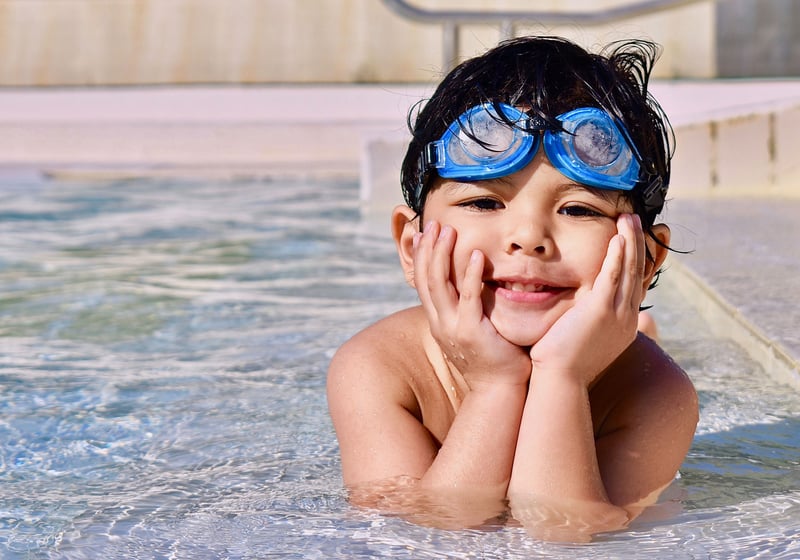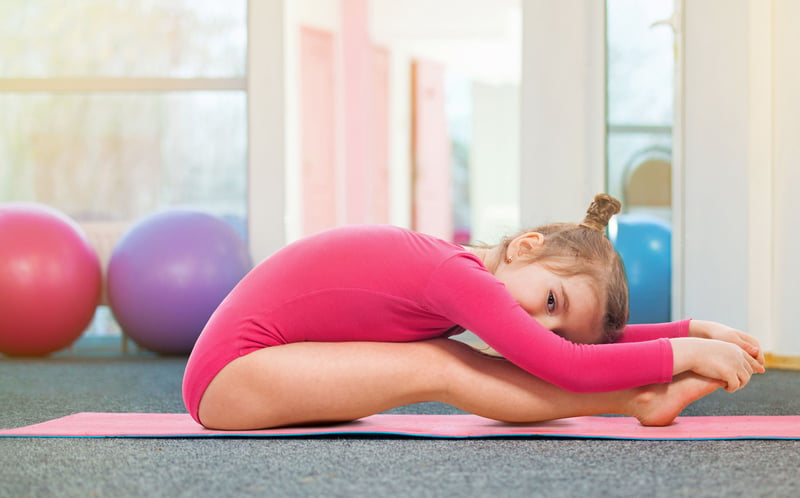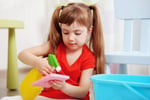
When my boys were little, I used to compare them (unkindly maybe) with puppies. Providing they had plenty of affection and were allowed to run around a lot outside, they were happy. Preschoolers are natural little whirlwinds of energy and need masses of exercise. Physical activity keeps little ones fit, healthy and strong, helps them relax and sleep better and is FUN!
Guidelines for three to six year olds recommend:
- at least 60 minutes of structured (adult-led) physical activity
- at least 60 minutes of unstructured (free play) physical activity
- no periods of inactivity for longer than one hour, unless sleeping
But what about organised sport? Is there any benefit to signing up your four-year-old to soccer lessons or gymnastics or tennis?
There is ... but it has nothing to do with learning sports.
It helps with separation anxiety
Learning to separate from a parent can be difficult for young children when they start school. Participating in a sport where parents can watch from the sideline but not be part of the activity is a great first step towards developing this skill.
It improves listening skills and concentration
Learning rules, following orders, waiting for the whistle, watching demonstrations - all help young children learn how to pay attention, be patient and follow instructions. Sports training helps children focus their minds as well as exercise their bodies.
It develops gross motor skills
Regular sporting activity strengthens little muscles, increases a child's stamina, improves their eye-to-hand coordination, balance, posture and physical control.

It teaches sportsmanship, fair play and collaboration
Organised sports help children learn how to take turns, co-operate with others, resolve conflict and treat adults and peers with respect. Helping to tidy up or collect equipment after training teaches children how to take responsibility for property and belongings.
It builds resilience
Sport helps children learn to cope with set-backs - from being on the losing team to falling over and bumping their head when trying a handstand. Kids learn how to deal with jealousy when they're not the fastest or the best.
It teaches the value of practice and persistence
Learning a new skill can be difficult at any age. But if a little child discovers that practice and perseverance can get them to shoot those hoops, score a goal, jump higher or glide on ice, they will apply that experience to other challenges they encounter in life.
It develops communication skills
Young children doing a sport will need to be able to ask for help - from their coach and/or peers. They will need to use verbal and physical language to get someone to pass to them, or when partnering up for a sports drill. They will learn how to use words to encourage and motivate their team mates.
It builds self-confidence
Let's face it, trying something new with people you don't know in an unfamiliar environment can be plain scary for many kids. Learning to overcome fear, master new skills and make friends at an early age gives kids courage and confidence in other areas of their lives.
Your preschooler may never be the next sporting champion or even excel in sports. But they will come away with a raft of skills that will help them thrive at school.
What sports do your little ones enjoy?










